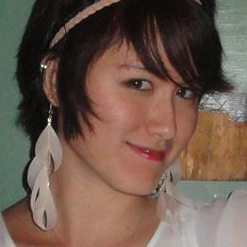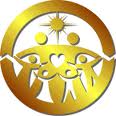Once a month we are revisiting Faith Fusion’s posts from the past. This one was submitted by Michael Hentrich in February of 2014. It’s basically a book review, and I chose to revisit this because it offers some much needed perspective. We may have many different types of problems we deal with on a day to day basis here in America, but as a nation we strive to ensure the well being of our citizens. It’s shocking to read the excerpts from this book about life in North Korea, but what’s more shocking is to imagine that a government would allow such conditions to continue for such a long time, and that the rest of the world could do nothing about it.
If this post stirs your desire to do something more, look into this organization that we have featured before: Liberty in North Korea (LINK)
Nothing to Envy
The following is an excerpt from Nothing to Envy: Ordinary Lives in North Korea, written by Barbary Demick, who follows the lives of six average North Korean citizens before and after their defection.
The problem was with the food. Housewives had started to pick weeds and wild grasses to add to their soups to create the illusion of vegetables. Corn was increasingly the staple again instead of rice, but people were adding leaves, husks, stems, and cobs to make it go further. That was okay for adults, but it couldn’t be digested by the tender stomachs of children. In the hospital the doctors discussed this problem among themselves, and gave the mothers what amounted to cooking advice. “If you use grass or bark, you have to grind it up very fine, then cook it a very long time so it is soft and easy to eat,” Dr. Kim told them….
…Often children came in with minor colds or coughs or diarrhea and then suddenly, they were dead. The poor diet lowered their resistance. Even if the hospital had antibiotics, their bodies were too weak. The babies were in the worst shape. Their mothers, themselves undernourished, didn’t produce enough breast milk. Baby formula was nonexistent and milk rare. In the past, mothers who couldn’t produce enough breast milk would feed their babies a watered-down congee made from cooked rice; now most of them couldn’t afford the rice either.
Then there were children who had no diagnosable symptoms at all, just a vague malaise. They would appear pale or slightly bluish, their skin papery and lacking in elasticity. Sometimes they had swollen bellies, but sometimes nothing at all.
“I can’t figure out what it is. I just can’t get my child to stop crying,” the mothers would tell Dr. Kim. She nodded sympathetically because she recognized the condition, but she was at a loss for words. How do you tell a mother her child needs more food when there is nothing more to give?
Dr. Kim would write out a slip admitting the child to the hospital, knowing she had no cure for this condition. The hospital didn’t have any food either. As she did her rounds, walking through the pediatric ward, the children would follow her with their eyes. Even when her back was turned, she could feel their eyes staring at her white gown, wondering if she could relieve their pain and soon realizing that she could not.
“They would look at me with accusing eyes. Even four-year-olds knew they were dying and that I wasn’t doing anything to help them,” Dr. Kim told me years later. “All I was capable of doing was to cry with their mothers over their bodies afterward.”
Dr. Kim hadn’t been a doctor long enough to have erected the protective wall that would insulate her from the suffering around her. The children’s pain was her pain. Years later, when I asked her if she remembered any of the children who had died on her watch, she answered sharply, “I remember all of them.”
Over the years the hospital provided less and less. The furnace in the basement went out after it ran out of coal, so the hospital had no heat. When the running water went off, nobody could properly mop the floors. Even during the day it was so dark in the interior of the building that doctors had to stand by windows to write up their reports. Patients brought their own food, their own blankets. Since bandages were scarce, they would cut up bedding to make them. The hospital was still able to manufacture intravenous fluid, but they didn’t have bottles for it. The patients had to bring their own, which were often empty bottles of Chongjin’s most popular beer, Rakwon, or “Paradise.”
“If they brought in one beer bottle, they’d get one IV. If they brought in two bottles, they would get two IVs,” Dr. Kim said. “It sounds too embarrassing to admit, but that’s just the way it is.”
Eventually the hospital emptied out. People stopped bringing their sick loved ones. Why bother?
I just finished reading this book a couple days ago. Like many people, I had heard about how impoverished North Korea is, but I didn’t know much more than that. This book really opened my eyes. I followed along with people who lived in North Korea all their lives and got a brief glimpse of their experience. It is not all bad. There are moments of romance and beauty, but overshadowing it all is the incredible suffering that so many experienced. Loved ones died of starvation and those who let their tongues slip would get dragged off to labor camps to die, many times along with their families.
I couldn’t help but take a big step back and look at my own life. I was fortunate enough to be born at this time in history and to be raised in a country where my possibilities are only hindered by my own self-imposed limitations. I renewed my commitment that I would live a life that mattered, that made a difference.
In America, we damage our bodies by eating foods that aren’t healthy and have unhealthy habits that further it. Meanwhile, in North Korea, people scrounge for tree bark, weeds, and grass to try to feed their children, simply because there is no other food to be found. In this country, we have no excuse for most of our health woes. We have an abundance of choices. Even if your local grocery store has a limited selection, the internet can bring it straight to your doorstep. I urge you to read this book. I think you will have the same experience I had and will determine to live your life in a way that is bigger than the way you are living it right now.
You can buy the book here (there is also a kindle and audio book version).
Originally posted Michael Hentrich in February of 2014.















